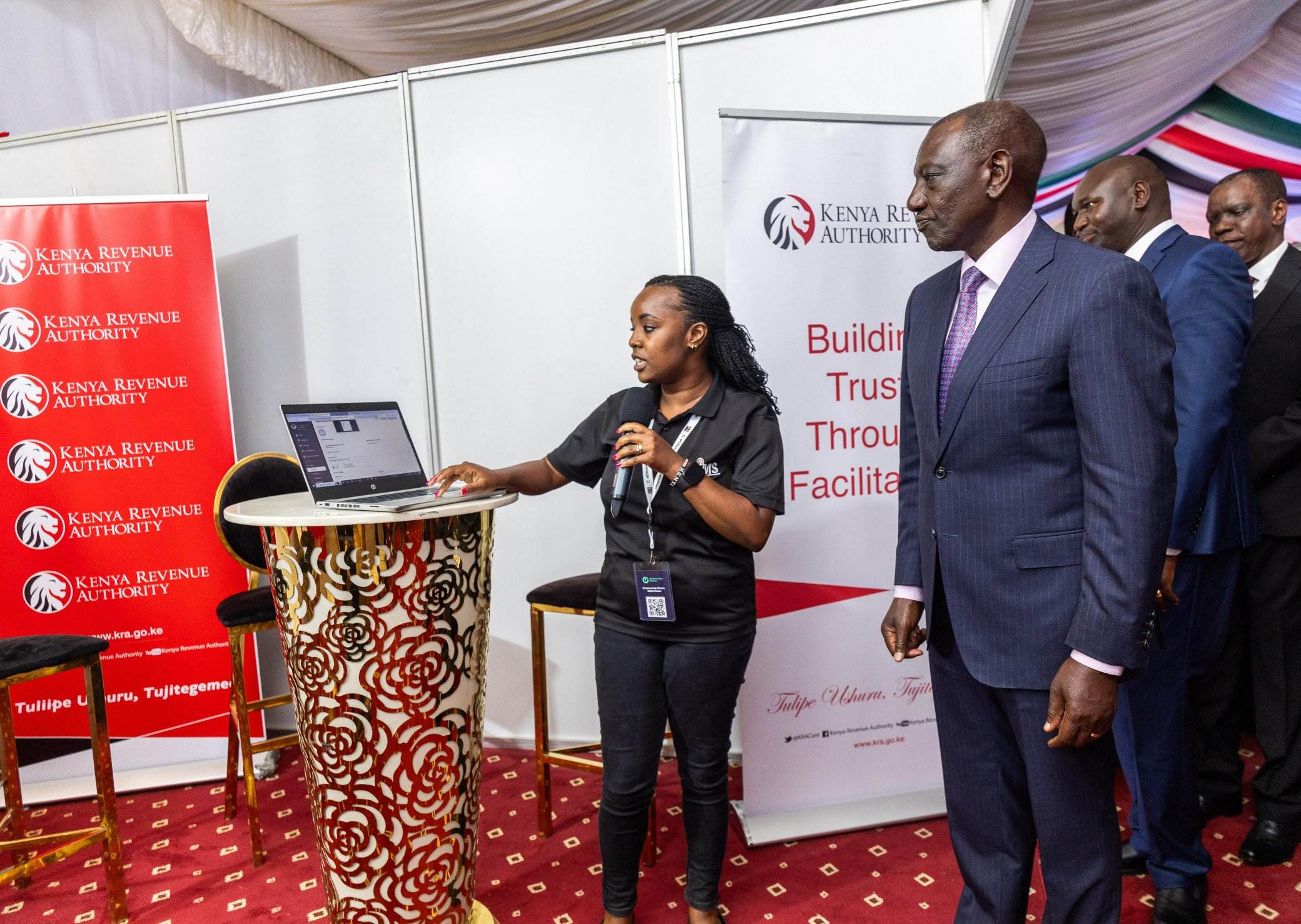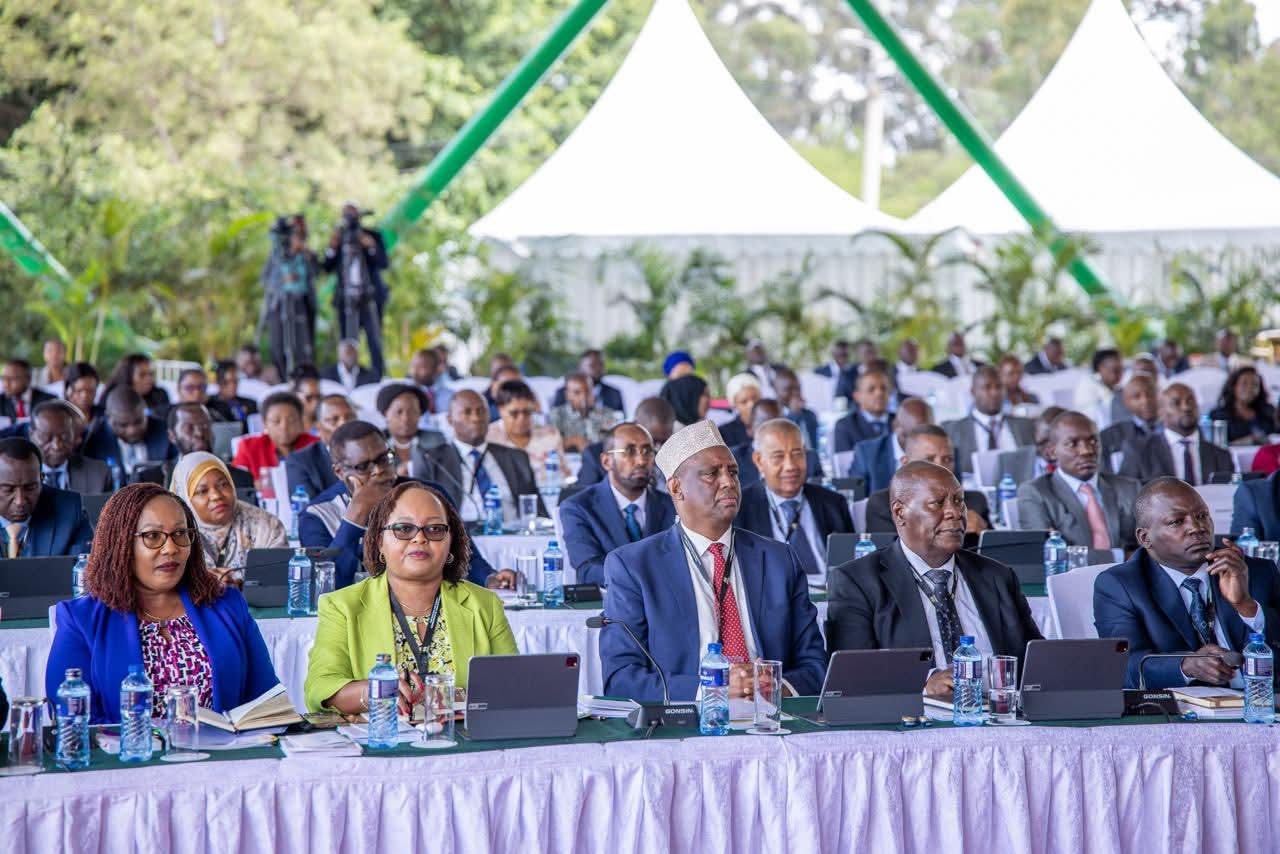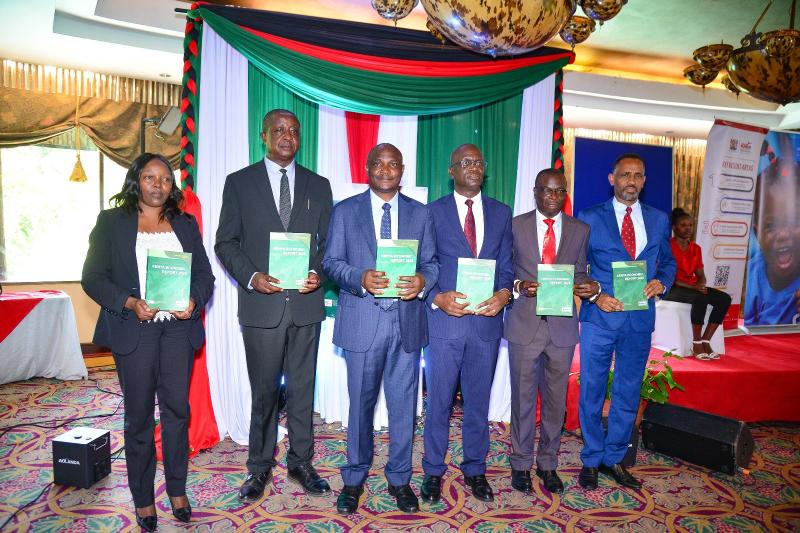Revealed: eCitizen run by three private firms handling payments, messaging and support

The consortium, known as Electronic Services Solutions (ECS) LLC, comprises three companies; Webmasters Kenya Limited, Pesaflow Limited, and Olive Tree Media Limited.
Immigration and Citizen Services Principal Secretary Belio Kipsang has revealed that a consortium of private firms is behind the operations and maintenance of the government’s eCitizen platform.
According to Kipsang, the consortium, known as Electronic Services Solutions (ECS) LLC, comprises three companies: Webmasters Kenya Limited, Pesaflow Limited, and Olive Tree Media Limited, each playing a specific role in the system’s functionality.
More To Read
- Kenyans can now gain access to over 22,500 government services on eCitizen platform
- Uwezo Fund disburses Sh2.2 million to 14 community groups in Kamukunji
- Museums go fully digital as National Museums of Kenya unveils new ticketing system
- AG advises Treasury CS to halt Sh50 e-Citizen convenience fee following High Court order
- Blow to State as court declares eCitizen Sh50 charge illegal, halts mandatory school fee payment via platform
- Ruto says fibre-optic growth powering faster eCitizen services and digital access
Kipsang said Webmasters provides customer care and related services, Pesaflow handles all payment processes, while Olive Tree Media oversees bulk messaging, notification security, and revenue mobilisation.
He revealed the details on Tuesday while appearing before the National Assembly Administration and Internal Security Committee at Parliament Buildings in Nairobi.
Kipsang told MPs that while eCitizen has existed since 2014, the current contract with the consortium took effect on May 25, 2023, and is set to run for three years.
“The deal is managed through the ICT Authority,” he said.
He noted that under the agreement, the government was billed Sh50 million for the standardisation of the platform, with additional annual maintenance costs ranging between Sh300 million and Sh1.08 billion, depending on the number of services integrated into the portal.
The PS also explained that the consortium charges a transaction-based tariff of between Sh10 and Sh20 for every service accessed via eCitizen. He noted that onboarding charges vary according to the complexity and number of services.
“Basic services can attract up to Sh1 million, while intermediate and complex services cost between Sh3 million and Sh5 million, respectively, with discounts applied as more services are added,” he said.
He further explained that the consortium charges separately for custom services. For instance, the government pays Sh52,500 daily for senior roles like project managers and software developers, while system analysts, researchers and software testers are paid Sh27,000 daily.
Surveillance
Kipsang assured lawmakers that eCitizen is under constant surveillance through a Security Operations Centre (SOC) housed at Nyayo House.
“eCitizen is continuously monitored, providing real-time tracking, intrusion detection, data integrity verification and regular penetration testing,” he said.
He added that a proactive risk management policy is in place, identifying potential threats such as cyber-attacks and system failures through regular assessments.
“Our risk management policy proactively identifies and assesses potential events or vulnerabilities, including cyber-attacks, system failures and operational risks, through regular risk assessments,” Kipsang said.
“We conduct Data Protection Impact Assessments (DPIAs) in conjunction with the Office of the Data Protection Commissioner (ODPC) to ensure our data processing practices meet the highest protection standards.”
The platform faced a major cyberattack in June 2023 that disrupted services for over a week. However, the then ICT Cabinet Secretary Eliud Owalo assured the public that no data was compromised.
Meanwhile, the Business Registration Service (BRS) has begun migrating to a new, enhanced digital system under eCitizen, dubbed BRS Version 2.
In a public notice, BRS announced a phased transition to the upgraded platform, brsv2.ecitizen.go.ke, which will host a wide array of services ranging from the registration of various company types to change of particulars, issuance of certified copies, and perusal services.
Among the services already available on the new system are registration and changes for Business Names (BN), Limited Liability Partnerships (LLP), Limited Partnerships (LP), Companies Limited by Guarantee (CLG), Private and Public Limited Companies (PVT & PLC), and Foreign Companies (FC).
Users can also access cross-cutting services such as the appointment or cessation of auditors, secretaries and authorised persons, restoration of struck-off entities, and amendments to company articles.
The upgrade is aimed at streamlining business registration processes and improving efficiency and service delivery through automation.
The transition comes in the wake of a major cyberattack that hit the Business Registration Service in early February this year.
The breach, which reportedly occurred on the night of January 31, resulted in sensitive information about private companies being exposed to the public.
The incident left the agency scrambling to contain the situation, raising fresh concerns about data security and protection within government digital systems.
Top Stories Today














































